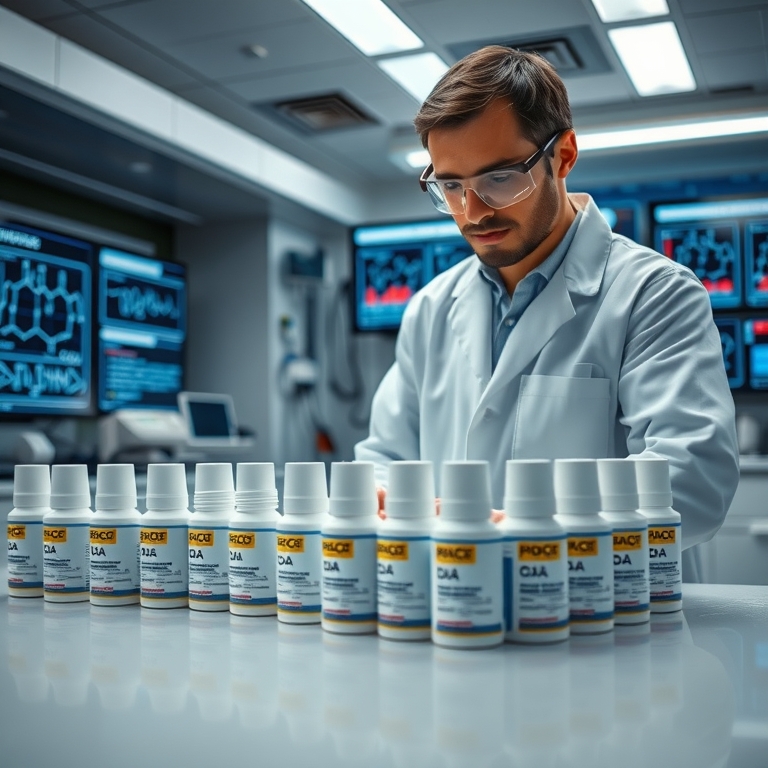In a significant move that has sent ripples through the personal care industry, the U.S. Food and Drug Administration (FDA) recently announced a recall of several popular deodorant brands due to concerns over chemical contamination. This decision underscores the ongoing challenges that companies face in ensuring product safety and maintaining consumer trust in an increasingly scrutinized marketplace.
The recall, which involves multiple batches of deodorants from different manufacturers, was prompted by the detection of potentially harmful chemicals during routine quality control checks. According to the FDA, these chemicals pose possible health risks to consumers, particularly when used over an extended period. While the FDA has not specified the exact compounds involved, insider sources suggest that benzene, a known carcinogen, could be among them. Benzene contamination in consumer products has been a growing concern, with several recalls in recent years highlighting its presence in various personal care items.
This development is particularly alarming given the widespread use of deodorants as part of daily personal hygiene routines. Millions of consumers rely on these products to manage perspiration and odor, often applying them directly to their skin. The potential for exposure to harmful substances, therefore, raises substantial health concerns, prompting swift action from both regulatory authorities and the companies involved.
The recall has not only sparked concern among consumers but has also prompted introspection within the industry regarding manufacturing practices and quality assurance protocols. As the FDA intensifies its scrutiny, manufacturers are being urged to reevaluate their supply chains, ingredient sourcing, and production processes to prevent future occurrences. This incident serves as a stark reminder of the importance of rigorous testing and transparency throughout the production lifecycle.
For the affected companies, the recall presents both a logistical challenge and a public relations dilemma. Brands must navigate the complex process of removing products from shelves, compensating retailers, and addressing consumer inquiries and complaints. Simultaneously, they must work to rebuild trust, a task that requires clear communication and demonstrable commitments to safety and quality. Companies are expected to issue detailed statements outlining their response measures and steps taken to ensure the integrity of their products moving forward.
The financial implications of the recall are also significant. Beyond the immediate costs associated with pulling products from the market, brands may face lawsuits from consumers claiming damages due to health issues linked to the use of contaminated deodorants. Additionally, the long-term impact on brand reputation could affect sales and market share, particularly if consumers shift their loyalty to competitors perceived as safer or more reliable.
In response to the recall, consumer advocacy groups have reiterated calls for stricter regulations and more robust testing protocols across the personal care industry. They argue that current standards are insufficient to protect consumers from potential hazards and that greater oversight is needed to ensure product safety. These groups are also urging consumers to be vigilant about the products they use and to report any adverse reactions to the FDA.
The deodorant recall also highlights the broader issue of chemical safety in consumer products, a topic that has gained increasing attention from both regulators and the public in recent years. As consumers become more health-conscious and informed about the potential risks associated with certain ingredients, demand for transparency and safer alternatives is growing. This evolving landscape presents both challenges and opportunities for the personal care industry. Companies that can effectively address safety concerns while meeting consumer expectations for performance and sustainability stand to gain a competitive edge.
While the recall is undoubtedly a setback for the affected brands, it also serves as a catalyst for industry-wide improvements. The incident underscores the need for continuous innovation in formulation and production methods, as well as the adoption of advanced technologies for testing and quality assurance. Embracing these changes can help manufacturers not only comply with regulatory requirements but also exceed them, establishing new benchmarks for safety and reliability.
In the wake of the recall, industry experts anticipate increased collaboration between manufacturers, regulators, and independent testing organizations. Such partnerships can facilitate the sharing of best practices and the development of new safety standards that better protect consumers. Additionally, they may lead to the creation of industry-wide initiatives aimed at educating consumers about product safety and the importance of informed purchasing decisions.
As the FDA and the involved companies work to address the immediate concerns stemming from the recall, the incident serves as a poignant reminder of the delicate balance between innovation and safety in product development. It highlights the critical role that regulatory oversight plays in safeguarding public health and reinforces the need for ongoing vigilance at every stage of the supply chain.
In conclusion, the FDA’s recall of deodorants over chemical contamination concerns presents significant challenges for the personal care industry. It underscores the importance of rigorous quality control measures and transparent communication with consumers. As the industry navigates this complex landscape, the commitment to safety and consumer trust will be paramount. By prioritizing these values, companies can not only mitigate the impact of current challenges but also position themselves for sustainable success in the future.

Leave a Reply